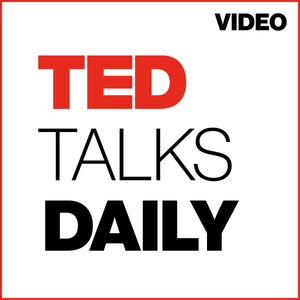
EPISODE 028 - Technical: How does my Podcast Setup look like?
11/18/24 • 14 min
Takeaways
The podcast production process is driven by community feedback.
Technical equipment plays a crucial role in podcast quality.
Notion is utilized for managing podcast episodes and workflows.
Automation tools like PowerShell and Azure improve efficiency.
Riverside is used for recording audio and video sessions.
Adobe Audition is essential for audio editing and finalization.
Social media content is generated from podcast recordings.
Time management is key; each episode takes about an hour to produce.
Mass production of episodes can save time in the long run.
Engagement on platforms like LinkedIn is vital for content generation.
Chapters
00:00 Introduction to Podcast Production
05:48 Technical Equipment Overview
12:07 Time Investment in Podcast Production
Takeaways
The podcast production process is driven by community feedback.
Technical equipment plays a crucial role in podcast quality.
Notion is utilized for managing podcast episodes and workflows.
Automation tools like PowerShell and Azure improve efficiency.
Riverside is used for recording audio and video sessions.
Adobe Audition is essential for audio editing and finalization.
Social media content is generated from podcast recordings.
Time management is key; each episode takes about an hour to produce.
Mass production of episodes can save time in the long run.
Engagement on platforms like LinkedIn is vital for content generation.
Chapters
00:00 Introduction to Podcast Production
05:48 Technical Equipment Overview
12:07 Time Investment in Podcast Production
Previous Episode

EPISODE 027 - Career: What is more important, soft skills or hard skills?
In this episode, Michael Seidl discusses the ongoing debate between hard skills and soft skills in the IT industry. He defines both types of skills, providing examples and insights into their importance in various scenarios. The conversation emphasizes the need for hard skills in immediate job performance while highlighting the long-term value of soft skills for adaptability and growth in one's career.
Takeaways
Hard skills are measurable abilities learned through education or experience.
Soft skills are non-technical skills that describe how you interact with others.
In critical situations, hard skills may take precedence over soft skills.
Soft skills are essential for long-term career adaptability and growth.
Hiring decisions should consider both hard and soft skills based on job requirements.
A balance of hard and soft skills can lead to a more effective workforce.
The IT industry is evolving, making soft skills increasingly important.
Candidates with a willingness to learn and adapt are valuable assets.
The demand for hard skills can fluctuate, making soft skills more reliable for hiring.
Sharing knowledge and experiences can enhance the value of the podcast.
Sound Bites
"I would prefer someone who knows his job."
"I decided I go for soft skilled people."
Chapters
00:00 Introduction to Hard Skills vs Soft Skills
02:48 Defining Hard Skills and Soft Skills
06:07 The Importance of Hard Skills in Immediate Needs
08:58 The Long-Term Value of Soft Skills
Next Episode

EPISODE 029 - Organisation: Why are meetings often a waste of time?
In this episode of the Get Shit Done in IT podcast, Michael Seidl discusses the common issue of unproductive meetings and offers practical advice on how to improve meeting efficiency. He emphasizes the importance of defining meeting topics and outcomes beforehand, considering alternatives to meetings, and prioritizing who should attend. Seidl also highlights that meetings do not have to conform to traditional time slots, advocating for shorter, more focused meetings to enhance productivity.
Takeaways
Meetings often waste time and could be replaced by emails.
Define meeting topics and expected outcomes beforehand.
Invite only those who can contribute to the meeting.
Consider alternatives like emails or team updates instead of meetings.
Shorter meetings can lead to more focused discussions.
Participants should clarify their roles in meetings.
Meetings do not have to be scheduled for long durations.
Encourage concise communication to avoid unnecessary meetings.
Use internal channels for information sharing instead of meetings.
Focus on outcomes rather than filling time in meetings.
Sound Bites
"Ask the invite, what is my role?"
Chapters
00:00 The Problem with Meetings
03:05 Improving Meeting Efficiency
05:57 Alternatives to Meetings
08:48 Prioritizing Meeting Attendance
If you like this episode you’ll love
Episode Comments
Generate a badge
Get a badge for your website that links back to this episode
<a href="https://goodpods.com/podcasts/get-sht-done-in-it-en-468409/episode-028-technical-how-does-my-podcast-setup-look-like-78450930"> <img src="https://storage.googleapis.com/goodpods-images-bucket/badges/generic-badge-1.svg" alt="listen to episode 028 - technical: how does my podcast setup look like? on goodpods" style="width: 225px" /> </a>
Copy




